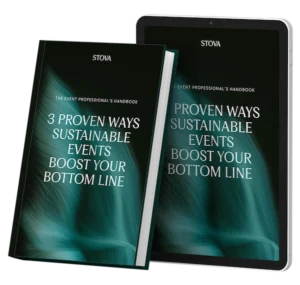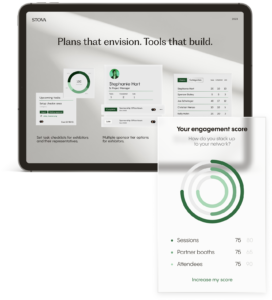How Event Tech Consolidation Streamlines Event Management
July 20, 2023
In recent years, the event industry has witnessed a rapid evolution driven by technological advancements. From virtual conferences to interactive event apps, technology has revolutionized the way events are planned, executed, and experienced. However, as the event tech landscape continues to expand, a new trend is emerging – event tech consolidation. This process of streamlining and integrating various event technologies is set to shape the future of the industry, providing organizers and attendees with seamless experiences and enhanced efficiency. In this blog post, we will explore the concept of event tech consolidation and its potential implications for the future of event technology.
Understanding Event Tech Consolidation
Event tech consolidation refers to the process of merging, integrating, or acquiring different event technology solutions to create a unified platform or suite of tools. The goal is to eliminate fragmentation
and silos within the event tech ecosystem, enabling organizers to manage their events more effectively and deliver exceptional experiences to attendees.
The Need for Event Tech Consolidation
The rapid increase of event technology solutions in recent years has created a crowded and fragmented marketplace. Event organizers often find themselves using multiple platforms and tools that do not integrate seamlessly with each other, leading to inefficiencies, data discrepancies, and a disjointed user experience. Event tech consolidation addresses these challenges by bringing together various functionalities into a unified system, enabling organizers to streamline their workflows and improve overall event management. This means organizers have more time to spend on the show floor.
5 Benefits of Event Tech Consolidation
1. Streamlined Event Management
Consolidating event technologies simplifies the process of planning, organizing, and executing events. From registration and ticketing to attendee engagement and post-event analytics, having all the necessary tools within a single platform reduces the need for manual data entry and multiple logins. This streamlined approach improves efficiency and saves valuable time and resources.
2. Enhanced Attendee Experience

By integrating different event tech solutions, organizers can provide attendees with a seamless and immersive experience. A consolidated platform allows for smooth navigation, easy access to event information, personalized content delivery, and interactive features. Attendees can engage with speakers, exhibitors, and fellow participants effortlessly, fostering meaningful connections and increasing overall satisfaction.
3. Enhanced Data Integration and Insights
Consolidating event tech solutions enables the gathering and analysis of comprehensive data from various sources. By centralizing data, organizers gain a holistic view of attendee behavior, preferences, and engagement levels. This data-driven approach provides valuable insights for optimizing future events, making informed decisions, and driving targeted marketing efforts.
4. Cost and Resource Efficiency
Managing multiple event technology solutions can be costly in terms of licensing fees, training, and support. Event tech consolidation eliminates the need for maintaining multiple contracts and reduces the overall expenditure associated with implementing and managing various tools. Additionally, it minimizes the strain on internal resources, as staff members can focus on a single integrated system instead of juggling multiple platforms.
5. Increase in Innovation and Integration Opportunities
Consolidation encourages collaboration and innovation within the event tech industry. By bringing together technologies and functionalities, event tech partners can create more comprehensive solutions that address a wider range of event needs. This integration of all aspects of the event under one event ecosystem fosters new possibilities, such as seamless virtual and hybrid event experiences, AI-driven personalization, and advanced networking capabilities.
4 Challenges and Considerations
While event tech consolidation holds immense potential, there are challenges that need to be addressed. These include:
1. Compatibility and Integration
Ensuring seamless integration between various event tech solutions can be complex. Vendors must prioritize interoperability and open APIs to facilitate data sharing and system compatibility. Chat with your event tech provider and ask them who they integrate with. Most will be happy to walk you through
the process and explain what integrating entails.
2. User Adoption and Training
Transitioning to a consolidated event tech platform requires user adoption and training efforts. Organizers need to provide comprehensive onboarding and support to help users navigate the new system effectively. Ask your event technology provider if they have training solutions for you and your teams. At Stova, we offer training and certifications for our clients to ensure their questions are answered and they are experts in our products, too. On the other hand, your event technology provider should be able to take over for you if you need it. Stova’s managed services do just this, and we’re here for your every step of the way, no matter which option you choose.
3. Vendor Landscape and Competition
The event tech industry is highly competitive, with numerous vendors offering specialized solutions. End-to-end event management solutions offer flexibility and innovation in your events. By having one partner for your entire event, you can ensure streamlined operations from beginning to end.
4. Data Security and Privacy
Consolidation necessitates the centralization of event data, which raises concerns about data security and privacy. Robust security measures must be implemented to protect sensitive attendee information.
 Conclusion
Conclusion
Event tech consolidation represents a significant shift in the event industry, streamlining processes, enhancing attendee experiences, and driving overall efficiency. By opting for a unified tech stack, organizers can benefit from streamlined event management, improved data insights, and cost efficiency. The potential for innovation and collaboration within a consolidated event tech ecosystem is substantial. As the industry continues to evolve, event tech consolidation will play a crucial role in shaping the future of event technology and setting new standards for exceptional event experiences.
Whether your event is virtual, hybrid, or in-person, enhance your attendee’s journey with an event ecosystem built for your audience. Ready to walk through Stova's event technology solutions? Schedule some time with us today.




 Conclusion
Conclusion